 Petzlover
Petzlover Both Bengal and Lykoi are originated from United States. Both Bengal and Lykoi are having almost same weight. Both Bengal and Lykoi has almost same life span. Both Bengal and Lykoi has same litter size. Both Bengal and Lykoi requires Moderate Maintenance.
Both Bengal and Lykoi are originated from United States. Both Bengal and Lykoi are having almost same weight. Both Bengal and Lykoi has almost same life span. Both Bengal and Lykoi has same litter size. Both Bengal and Lykoi requires Moderate Maintenance.
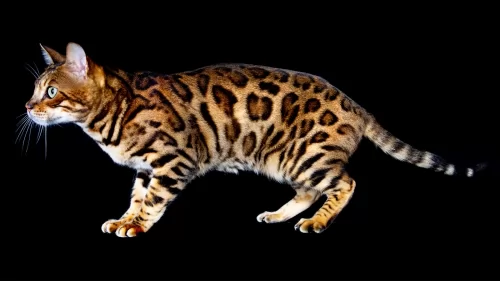 What an exquisite coat the Bengal cat has. It looks like the coat of a wild cat and can have spots, marbling, and rosettes, but it is domesticated, developed from hybrids – the spotted Egyptian Mau and the Asian Leopard cat.
What an exquisite coat the Bengal cat has. It looks like the coat of a wild cat and can have spots, marbling, and rosettes, but it is domesticated, developed from hybrids – the spotted Egyptian Mau and the Asian Leopard cat.
It is the only domestic breed of cat that has rosette markings. It is Jean Mill of California that you associate the Bengal cat with, and she conducted a number of graduate classes in genetics.
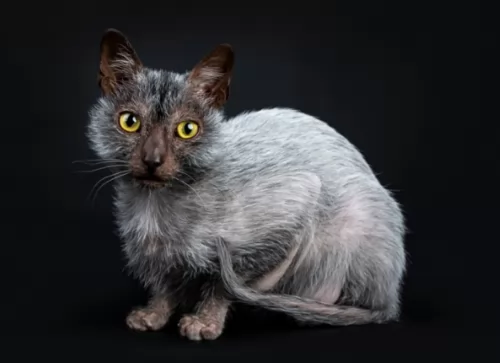 These cats were first discovered in 2010 in Virginia. It was Patti Thomas who named the breed Lykoi.
These cats were first discovered in 2010 in Virginia. It was Patti Thomas who named the breed Lykoi.
It was in 2012 that the cat breed went before the International Cat Association and is now recognized as a Championship Breed.
There is also work being done to expand the cat’s breeding program. It’s a naturally occurring gene in the feral cat population. There are still Lykoi cats born to the feral cat population.
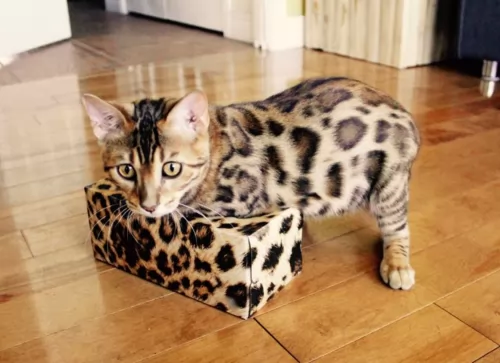 The Bengal looks like a wild cat and it can weigh up to 7kg. It can reach a height of 70cm with long, muscular legs and almond-shaped eyes which are green or blue.
The Bengal looks like a wild cat and it can weigh up to 7kg. It can reach a height of 70cm with long, muscular legs and almond-shaped eyes which are green or blue.
When it comes to the coat of the Bengal cat, it has a wide variety of colors and patterns. The cat can be brown, black, red, grey, spotted, clouded, ticked or rosette.
There are Bengal breeders that claim that their Bengals are hypoallergenic so that they won’t cause an allergic reaction with their owers. This is something that hasn’t been scientifically proved and in fact many will say that there isn’t such as thing as a hypoallergenic cat.
The Bengal is a medium to large-sized cat, being long and lean and muscular. As a low shedder, it is believed the Bengal is a hypoallergenic cat breed – a cat less likely to cause an allergy with its human owners.
When you bring a Bengal cat into your home, you’ll find they are energetic, smart, and playful and they love cavorting around in water.
People who have owned a Bengal say that the cat is friendly and that it enjoys interacting with humans. They’re cats capable of forming strong bonds with their human family, becoming affectionate and loyal. They in turn want to receive lots of loving attention.
They’re intelligent too and are quick to learn. You have to remember that these are part wild cat and that they are only classed as tame from the 4th generation (T4).
The cat has wild traits so it is only natural that it likes to hunt so don’t be alarmed when your Bengal presents you with dead mice, moles, and birds.
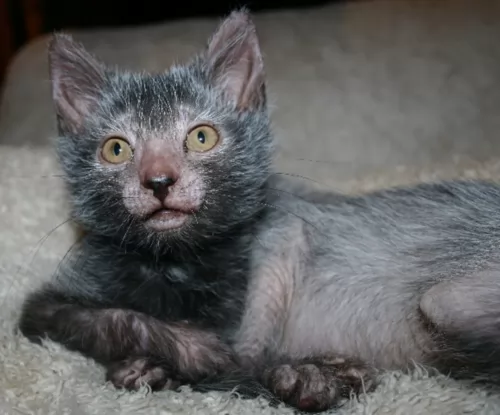 The Lykoi varies quite a bit in looks and you get some that are completely covered in hair and some that are actually partially hairless. Strangely, they are born with quite a lot of black fur.
The Lykoi varies quite a bit in looks and you get some that are completely covered in hair and some that are actually partially hairless. Strangely, they are born with quite a lot of black fur.
The cat has a solid black roan coat with no undercoat. Even though the cat is partially hairless, it molts a couple of times each year.
People are inclined to think that the little bit of hair would be wiry, when in fact it is soft and silky. It's just that it looks like bristles, but is actually not. People are always surprised by the coat's softness.
The Lykoi has a lean muscular body with large ears and eyes. He is a medium-sized cat and can weigh between 4 to 6kg.
The Lykoi is a friendly, people-oriented cat that is affectionate towards its human owners. This is also a playful cat breed and he is also intelligent and inquisitive.
The Lykoi is fond of his human family and makes a wonderful companion.
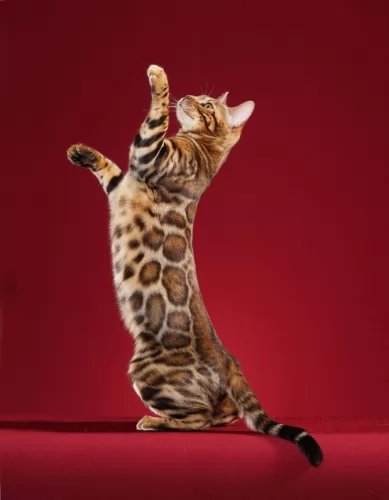 Bengal cats are intelligent and just like a dog he is clever at learning tricks and can even be taught things such as ‘sit’, ‘fetch’ or ‘lie down’. They actually make great companions as they are sensitive to their owner's moods and can even recognize human gestures and adapt their behavior to their owner's mood.
Bengal cats are intelligent and just like a dog he is clever at learning tricks and can even be taught things such as ‘sit’, ‘fetch’ or ‘lie down’. They actually make great companions as they are sensitive to their owner's moods and can even recognize human gestures and adapt their behavior to their owner's mood.
They’re vocal cats too and they like to communicate about their needs, being able to meow in different tones. They’re active cats and they want active owners – those who can spend time with them playing and even going on walks and hikes.
The Bengal certainly is a wonderfully companionable cat.
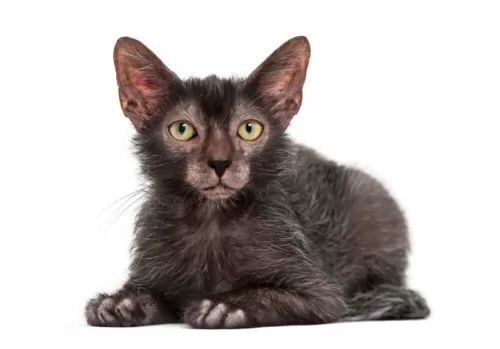 People who have owned the Lykoi say that they make a remarkable and devoted pet. They want a lot of attention and they’re willing to give attention as well.
People who have owned the Lykoi say that they make a remarkable and devoted pet. They want a lot of attention and they’re willing to give attention as well.
They’re social cats and want to spend time with their human companions. A cat that doesn’t receive the love and care it needs can become heartbroken and sick.
If you have one of these cats and your life has changed so that you can’t give it the attention it craves, at least provide it with a feline companion.
Cats aren’t all the aloof creatures they’re made out to be and your Lykoi is capable of making you a splendid companion.
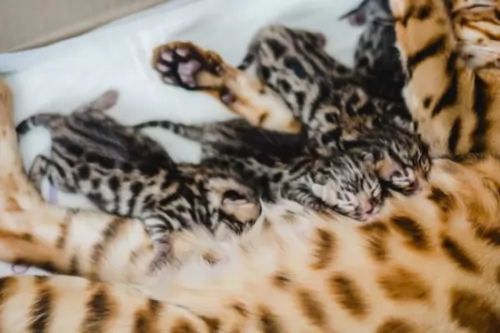 Hypertrophic cardiomyopathy (HCM) is a concern with the Bengal cat breed and this is a disease where the heart muscle becomes thick and unable to pump blood properly.
Hypertrophic cardiomyopathy (HCM) is a concern with the Bengal cat breed and this is a disease where the heart muscle becomes thick and unable to pump blood properly.
It’s a common genetic disease in Bengal cats. Cats used for breeding need to be screened each year to ensure no hypertrophic cardiomyopathy is present.
Another problem with the Bengal cat is Progressive retinal atrophy or PRA. Anyone wanting to breed Bengals should have their cat tested for this eye disease as the disease can lead to blindness.
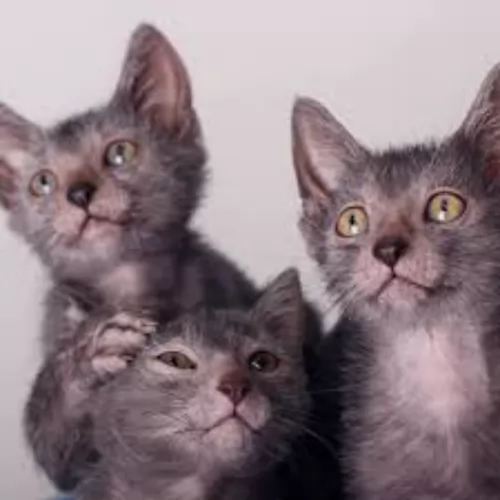 This cat is vulnerable to being cold and it should essentially be an indoor cat. If your Lykoi cat escapes, it can’t possibly keep warm on its own.
This cat is vulnerable to being cold and it should essentially be an indoor cat. If your Lykoi cat escapes, it can’t possibly keep warm on its own.
The Lykoi cat has not shown any specific health problems but being hairless, it is vulnerable to respiratory issues. Eye discharge as well as perpetual sneezing are characteristics of a cat with Feline Upper Respiratory Disease.
The cat’s mouth, sinuses, nasal passages, and upper airway are all affected. Your cat will need to get to the vet for a diagnosis and medical treatment. There are vaccines to prevent feline upper respiratory disease.
Any cat can develop this disease and your cat may have trouble breathing.
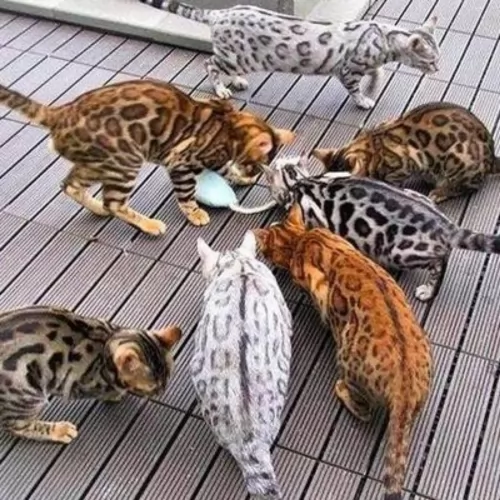 You will need a secured outdoor area for your Bengal cat where he can play and climb. He will need these for his activity levels as well as stimulating toys.
You will need a secured outdoor area for your Bengal cat where he can play and climb. He will need these for his activity levels as well as stimulating toys.
Provide feeding and water bowls and also make sure that you provide your Bengal with a shallow swimming pool as this cat loves water.
The Bengal is a healthy cat breed so it is important to provide your pet cat with the best food there is and to ensure he gets checked out at the vet every year.
Most hybrid breed owners provide raw food as these cats are often sensitive to commercially manufactured food. Having said that, there are high-quality prepared cat foods that will provide your Bengal with everything needed for a healthy life.
Look at providing your pet with a good supplement to ensure your furry friend has every chance to be healthy and happy.
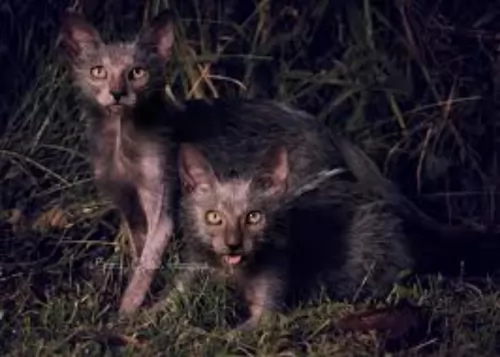 With the Lykoi’s lack of a coat, it isn’t going to require too much grooming. However, you have to keep a watch on this cat as without hair, he is vulnerable to sunburn and to getting cold.
With the Lykoi’s lack of a coat, it isn’t going to require too much grooming. However, you have to keep a watch on this cat as without hair, he is vulnerable to sunburn and to getting cold.
The cat has oily skin and it’s one cat breed that will need a bath occasionally. Some people recommend it once a week. Use warm water and a special pet shampoo recommended by your vet. Every trace of shampoo will need to be washed off to avoid the skin becoming irritated.
Provide your cat with food and water bowls, bedding, litter box, collar, grooming accessories and toys.
Cat food is a huge, important decision for any cat, as their very health depends on it. Commercially manufactured cat foods are available as wet and dry. Make sure you always get your cat food from a reliable source.
Some people believe in offering their cat both wet and dry options. Whatever you decide for your cat, remember that it needs to be at least 70% protein as every cat is a carnivore and requires a diet rich in protein.
If in any doubt, rather speak to your veterinarian and ensure that your Lykoi is getting the best food there is to promote good health. Always make sure that your cat has access to fresh cool water night and day.